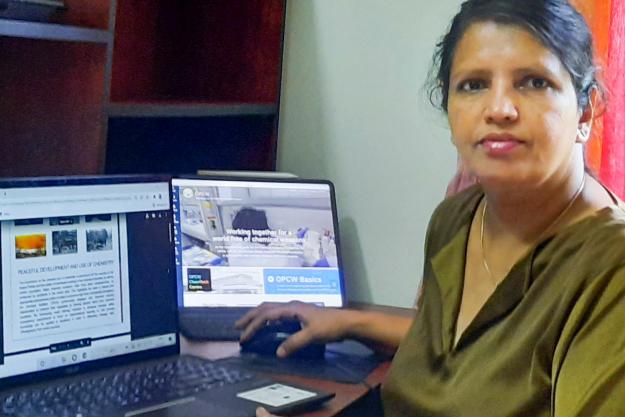
THE HAGUE, Netherlands–13 December 2021–The Organisation for the Prohibition of Chemical Weapons (OPCW) and the Republic of Korea conducted a joint advanced training today for chemical safety and security specialists from OPCW Member States in Asia. Participants engaged on a range of topics related to the peaceful use and development of chemistry, including chemical safety and security.
Director of Disarmament and Non-proliferation division of Korea’s Foreign Ministry, Mr. Il-hoon Kim, stressed in his opening statement: “Korea is committed to strengthening regional cooperation in the field of safety and security. We believe that the role of the chemical industry is essential in upholding the CWC regime and ensuring security and safety with a heightened sense of responsibility.”
The Head of OPCW’s International Cooperation Branch (ICB) stated: “Korea is a committed Member State of the OPCW and has partnered with ICB to host the Seoul Workshop on the Peaceful Use and Development of Chemistry for the last ten years. The continued relevance of this event has made it an important part of ICB’s training programme, to the benefit of all Member States in Asia.”
The diverse group of participants included representatives from chemical industry, National Authorities, government departments, defence sector, and academia.
Along with topics on the importance of the peaceful application of chemistry, trainers included case studies on the dual-use of the chemicals and the diversion of chemicals for non-peaceful purposes. The training also covered practical ways to strengthen chemical safety in industry settings, such as the Process Safety Management (PSM) audit toolkit. A Korean expert explained the theoretical foundation of the PSM audit process and provided concrete examples of how to apply it in an industrial setting.
24 attendees represented the following thirteen OPCW Member States: Bangladesh, Cambodia, Iran, Indonesia, Malaysia, Myanmar, Pakistan, Philippines, Qatar, Saudi Arabia, Sri Lanka, United Arab Emirates and Vietnam.
Background
As the implementing body for the Chemical Weapons Convention, the OPCW, with its 193 Member States, oversees the global endeavour to permanently eliminate chemical weapons. Since the Convention’s entry into force in 1997, it is the most successful disarmament treaty eliminating an entire class of weapons of mass destruction.
Over 98% of all declared chemical weapon stockpiles have been destroyed under OPCW verification. For its extensive efforts in eliminating chemical weapons, the OPCW received the 2013 Nobel Peace Prize.
